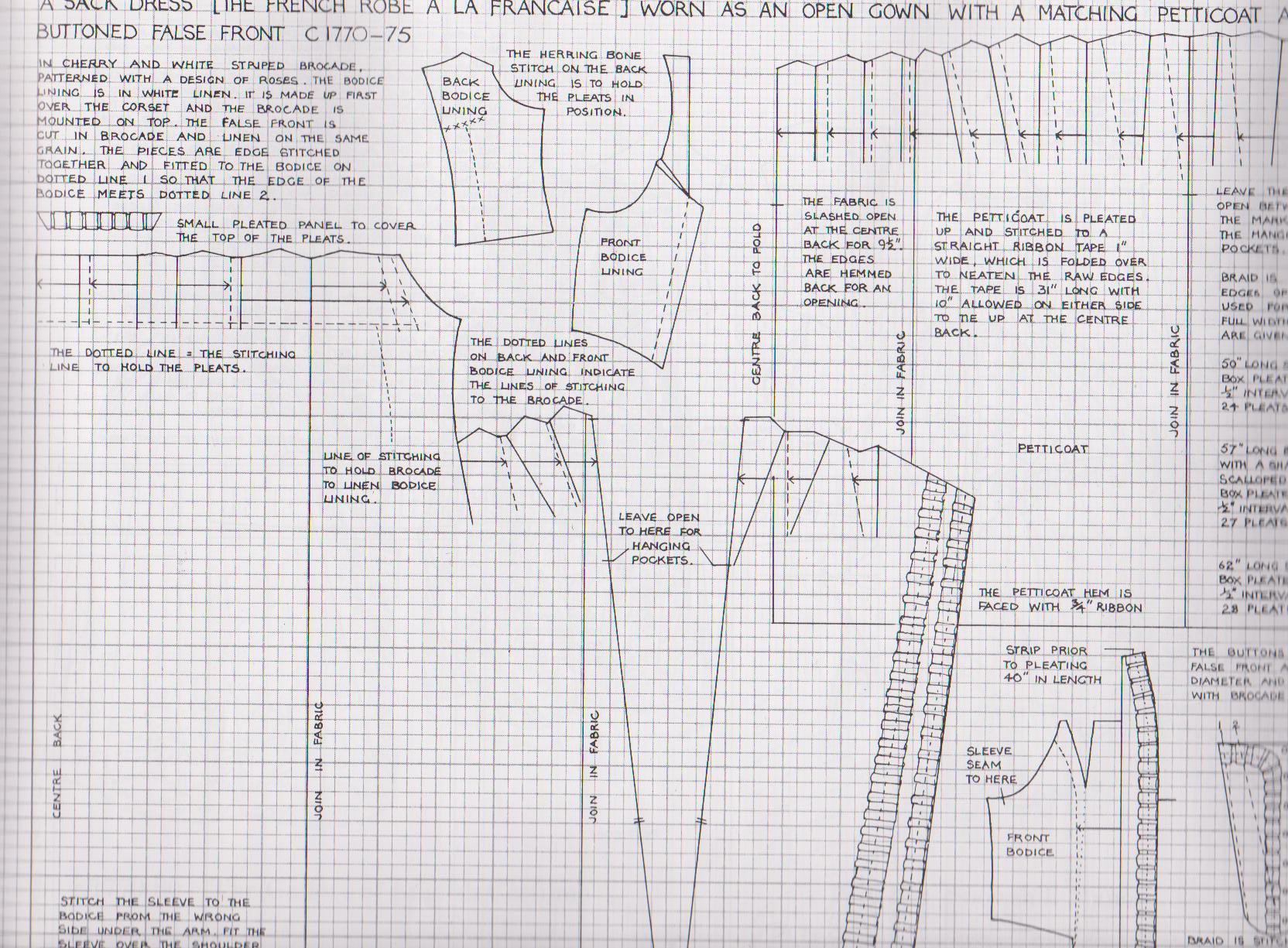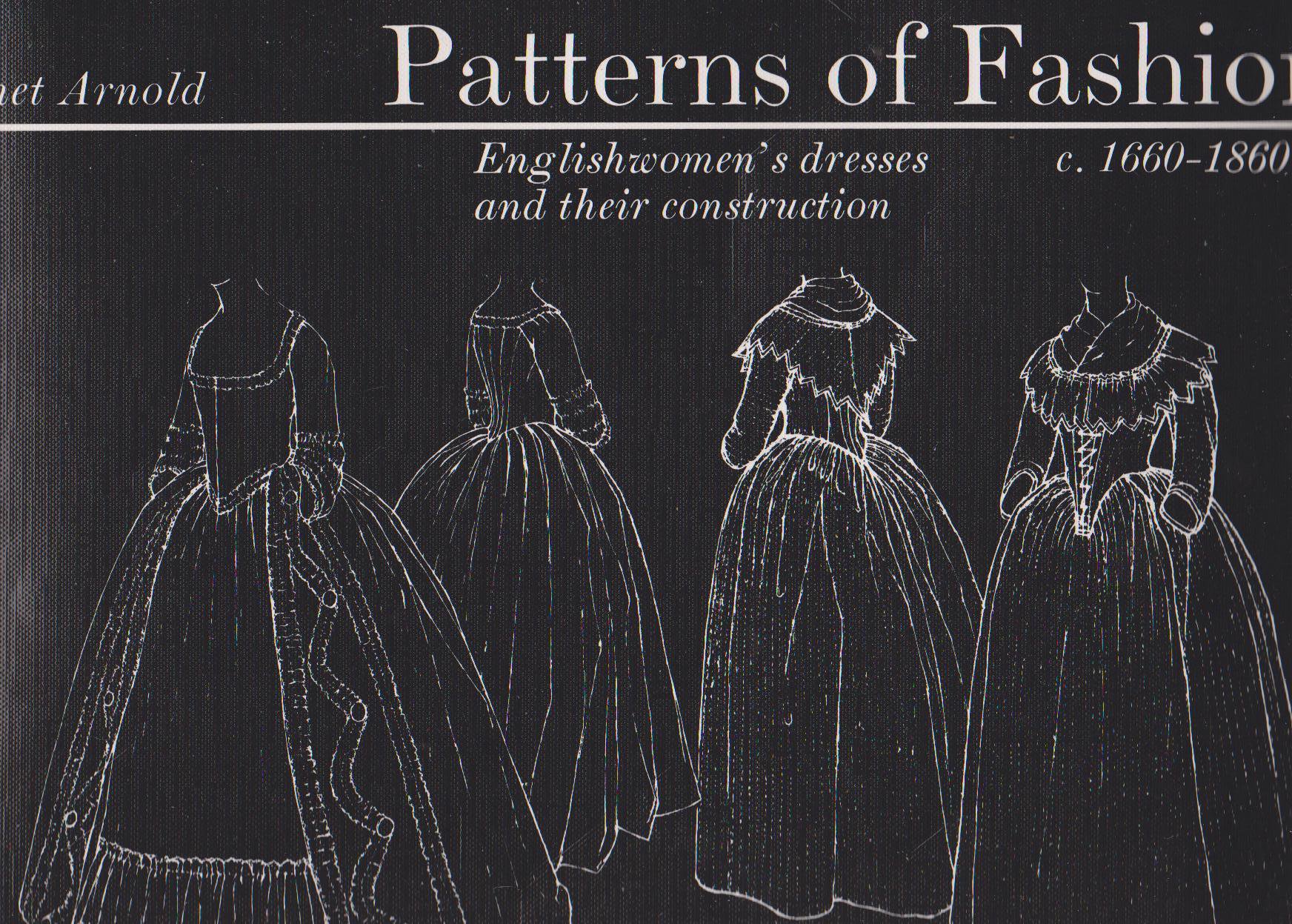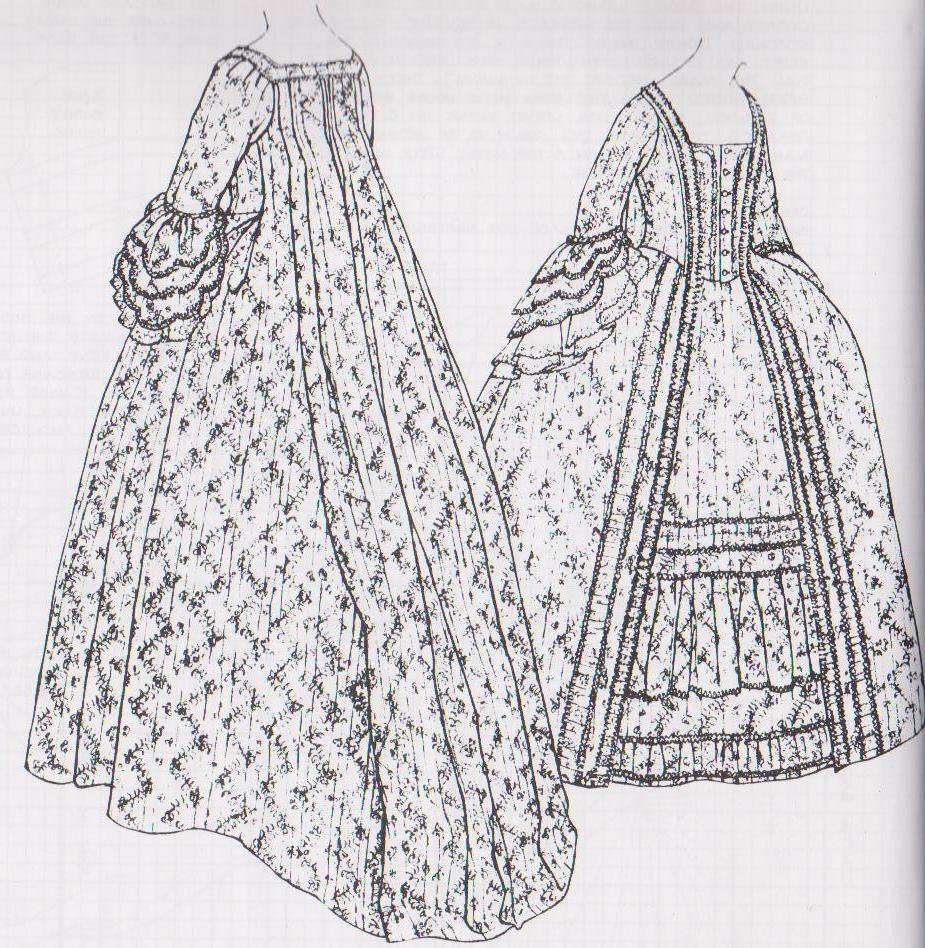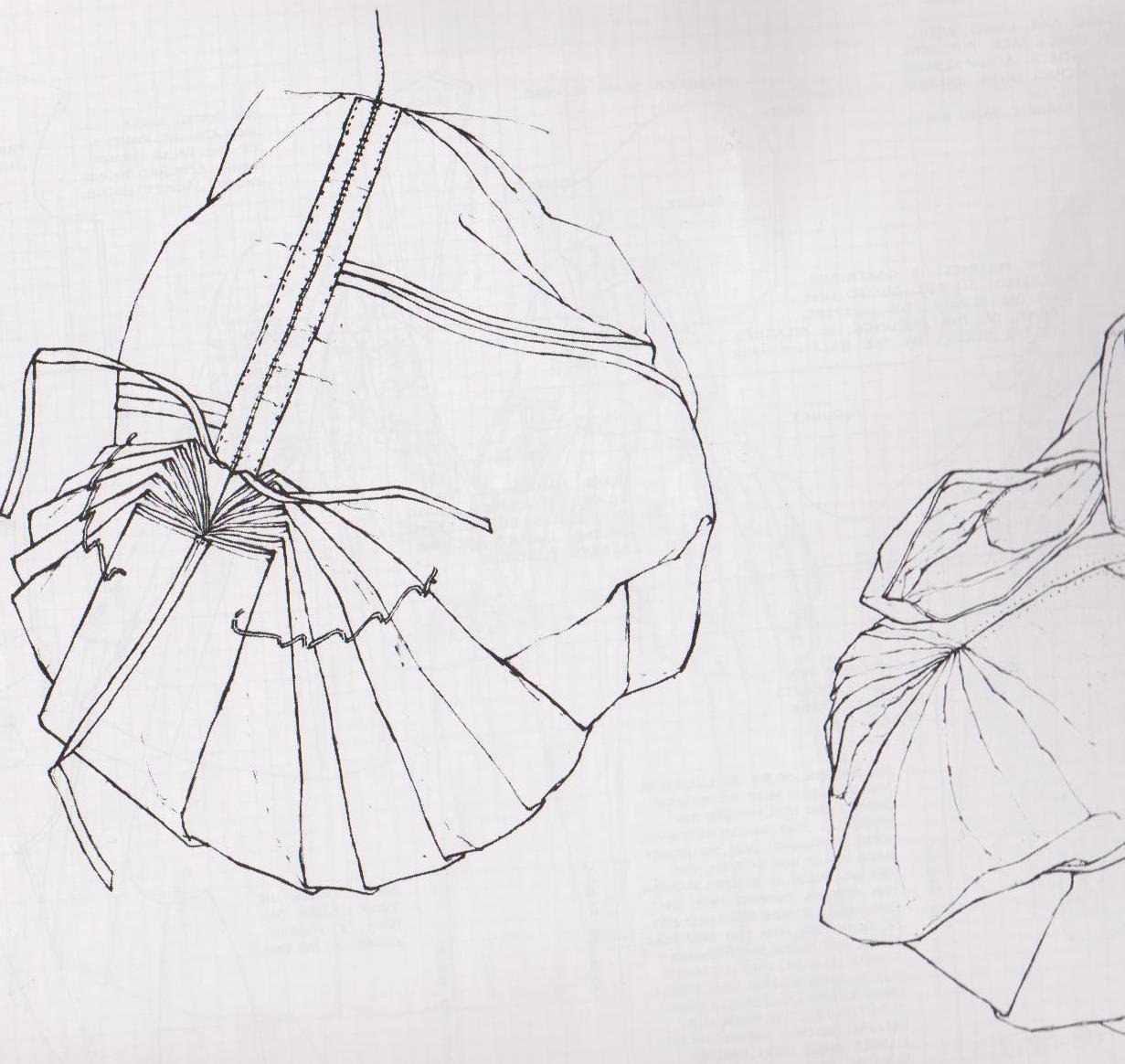Patterns of Fashion:
By Janet Arnold.
You’ve probably already got this book. I think anyone with the mildest of interest in Historical Costuming has this book. Needless to say it is wonderful and is no better than when you’re mid pattern cutting and need to reference a detail and see how things were cut.
There is included here only a glimpse into the book, concentrating on one pattern and one working drawing but hope it gives you a taster as to what to expect if you bought this book.
Front Page:
The next image is one that we ourselves have been working on and already features in our blog. We have used it as a base for our Robe a la Francais in the Maroon Taffeta and it is a working drawing from a dress in the Snowshill Collection. Please see page.34 for more details.
A Section of Page 34:
The above is interesting. J.Arnold describes it on the following page as: ‘A Sack Dress (the French Robe A La Francais) Worn as an Open Gown With a Matching Petticoat and a Compere or Buttoned False Front c.1770-75’. So, the term ‘Open Robe’ just means that the gown splits open at the front to display a petticoat – easy! The term petticoat is as it is today and was back then: the under skirt. Our modern day term however implies that it shouldn’t be seen but in the 18th century it meant an under skirt, seen or unseen – again, fairly clear. The interesting bit comes with this word ‘Compere’. Now in french it means ‘Friend’. There is not often reference to using the word ‘Compere to mean a stomacher or possible ‘buttoned stomacher’ so it’s hard to know where this term comes from. It could be that the stomacher is of a matching set to the dress – ergo ‘friend’. This has it’s down fall as the petticoat also matches and is not referred to as ‘Compere’. Alternativly, it could have it’s roots in the fact that because it’s buttoned up there are two halves made for each other – it could be described as the Button half having it’s companion in the Button hole half – are you following! It might be a contemporary term from the 18th century or just something Janet Arnold picked up in her lifetime. At the moment we don’t know. Simply: more research is needed!
Next is the Pattern page for the above dress. The book is really elongated book and not all of it can be fitted into the scanning machine so we apologise that it is not all here. You will just have to buy the book!
Page 35:

Next is another image that we have used in the designing of out Robe a la Francais and it is the inside detail of a Sack Dress from the V&A, dated 1745-55. The dress itself has very wide side hips and we used this as a reference to the folding techniques that were used at the ends of the hips. We also used it for the draw cord that it had running along the top seam which meant that the skirts could be pulled in to fit smaller hoops. We liked that; we though it was a very good idea.
Page 32:
The patterns are based on 1 x square per 1″. Which is ingenious really.
The book doesn’t just focus on laying out patterns for original gowns – in the opening chapter, Janet Arnold has written an immense amount of her research down looking into the progression of fashion and mostly the development of techniques. She quotes from manuals dating as early as 1660, listing contemporary terms, letters from the 18th century. She uses Diderot and Garsault, engravings and newspapers – it’s incredible. It’s almost of the same use and value as the patterns. For example, on p.4 she quotes from a letter from Lady Suffolk where she writes that she has sent a ‘little young lady’ (a doll!) dressed in ‘court dress, which I desire you would show to the queen and when she is done with it, let Mrs Tempest have it’. Mrs Tempest was a court milliner. It’s just fascinating. There are also 3 fabulous engravings on p.7 which give you such a flavour of the Tailoring world. One is an engraving from Garsault’s ‘L’Art Du Tailleur’ and details a man taking measurements, ladies sewing by a window and another man cutting out patterns.






